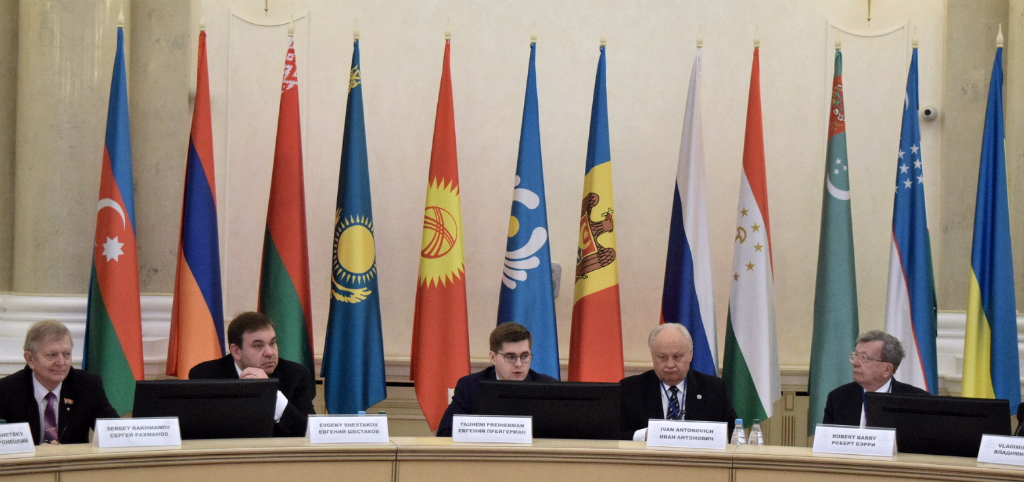25 Years without the Soviet Union: where are post-Soviet trajectories heading?
On December 8, 2016, President of CASE, Dr. Christopher A. Hartwell talked during the discussion session “Reality Check: A new Cold War?” at the international conference “25 years without the Soviet Union: where are post-Soviet trajectories heading?” organized by the expert initiative “Minsk dialogue”. The events’s agenda was built around the questions of fundamental transformations within the former USSR area through the prism of the contemporary state of international affairs.
25 years ago, on December 8, 1991, leaders of Belarus, Russia and Ukraine signed the Belavezha Accords, which, effectively, brought to an end the USSR and, in broader terms, the bi-polar world order. A new era in global affairs began. At that moment, expectations were high, yet ambivalent, on both sides of the former Iron Curtain. The end of history discourse dominated economic debates and implied a bright post-Soviet trajectory for the newly established independent states. However, the Soviet legacy and obvious security threats signaled that the road to a post-Soviet regional order would be bumpy.
In fact, the multiple transitions turned out to be far more complex and non-linear than most analysts expected. Numerous fundamental questions remain unanswered up until now and new ones have emerged. The conflict in Ukraine and the deterioration of Russia-West relations to the level of what many call a new Cold War have again thrust the post-Soviet space in the international media spotlight and onto the immediate agenda of world leaders. Multiple questions about post-Soviet trajectories have once again gained a practical, rather than purely historical, meaning.
Marking the 25th anniversary of the disintegration of the USSR, the conference examined today’s state of play in the post-Soviet space, its meaning for Europe and Eurasia and for the future of international relations and security.

The conference was attended by authoritative researchers from the CIS countries, Europe and the USA, representatives of the CIS Executive Committee, the National Assembly of the Republic of Belarus, the Ministry of Foreign Affairs of Belarus, experts and political analysts from Armenia, Belarus, the UK, Germany, Georgia, Kazakhstan, Poland, Russia, Slovakia, the USA, Ukraine, France, and representatives of the diplomatic corps.
